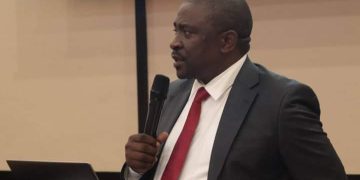The National University of Lesotho (NUL) welcomed delegates from across the globe for the 25th WaterNet/WARFSA/GWPQ-SA Symposium, marking the first time Lesotho has hosted this esteemed event. Held from October 31 to November 1, 2024, at Avani Maseru, the symposium is set against the backdrop of Lesotho’s 200-year anniversary as a Kingdom.
The symposium, themed “Enhancing Sustainability: Upscaling Innovations and Best Practices for Integrated Catchment and Water Resources Management (ICWRM) in Eastern and Southern Africa Leaving No One Behind,” aligns closely with the UN’s Sustainable Development Goals (SDGs) and the Southern African Development Community’s (SADC) water agenda.
Dr. Mamohau Thamae, Chairperson of the Local Organizing Committee (LOC), emphasized the significance of hosting the symposium in Lesotho for the first time, underscoring its importance to NUL’s role in facilitating regional collaboration. “This year’s symposium theme reflects the pressing need to enhance sustainability, especially within water management, to ensure no community is excluded,” she said.
The three-day event draws participants from academia, government, private sectors, and global organizations, with a strong focus on research and cooperation across water-related fields. Dr. Thamae noted that presentations, discussions, and deliberations would take place, tackling regional challenges and identifying gaps in current water management strategies.
NUL Vice Chancellor Professor Sola Fajana stressed the importance of inclusive development. “Water is not just a resource; it is the lifeblood of our communities, economies, and ecosystems,” he remarked, calling for actionable solutions that account for the complexities of water resource management and sustainable development.
Jennifer Molwantwa, CEO of the Water Research Commission (WRC), highlighted the pivotal role of strategic partnerships in advancing water sector capacity. She urged attendees to prioritize innovation and evidence-based decision-making, warning that the SDGs’ 2030 deadline is fast approaching. “We need to start planning for the next 50 years,” Molwantwa said, calling for creativity in policy shifts and the inclusion of marginalized voices, particularly youth.
As the symposium concludes, it stands as a testament to the power of collaboration, innovation, and foresight in tackling one of the region’s most pressing challenges ensuring sustainable water management for future generations.





